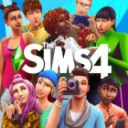Among Us
Among Us review
A Journey into the World of Among Us
After countless hours spent immersed in various digital realms, I recently decided to revisit a landmark title that continues to spark lively discussion among gamers worldwide. Among Us has long been celebrated as a unique blend of strategy, deduction, and social interplay that ignites intense sessions with friends and strangers alike. From its quirky design to its deceptively simple mechanics, this game challenges you to figure out who among your crewmates might be substituting your productive journey with underhanded actions. And while the game might seem straightforward at first glance, its layered gameplay offers an experience that is as engaging as it is unpredictable.
The Experience of Playing
As an experienced gamer, I appreciate a title that not only entertains but also evolves beyond its initial appeal. The core gameplay of Among Us centers around a small crew working towards common objectives on a spaceship, alternate station, or outpost, while a covert few disrupt the mission from within. This constant interplay of trust and suspicion is a refreshing take on multiplayer strategy that keeps both veteran and newer players on their toes. When you decide to play, each session generates unique scenarios where observation and communication prove crucial in uncovering the mastermind behind the mayhem.
The design is straightforward but robust. With character variations that lend personality to an otherwise simple space setting, the developers succeeded in creating a game that is both accessible and engaging. Whether you are new to this type of gameplay or a seasoned strategist, the simplicity of the rules combined with deep interaction dynamics makes every meeting unpredictable and electrifying. It’s a great example of how minimalism paired with smart design can lead to an immersive experience.
The Art of Strategy and Deception
While the game’s primary elements are simple, the layered strategies ensure that no two rounds are ever the same. For those who are quick to analyze, you have the opportunity to observe small tells in your fellow players’ actions. The intensity builds as you and your fellow participants discuss, cast suspicions, and try to piece together subtle clues. In many respects, each session feels like a mini-masterclass in strategy where social communication and intuition are your best tools.
The interface is designed with speed and efficiency in mind, and you can quickly grasp the mechanics of how tasks interact with the overall storyline of deception. It’s clear that much thought went into balancing simple controls and intricate strategies. In reality, every session is a race against time to piece together a coherent narrative from a series of incomplete hints while making sure you don’t get singled out as the potential saboteur.
Graphics and Sound Design
Graphically, Among Us embraces a cartoonish aesthetic with vibrant colors that set a casual tone. The visual style complements its setting perfectly, making it inviting to a broad audience, including those who might prefer games that are not overly intense or graphically dense. The sound design is subtle yet pivotal in creating an atmosphere where every beep, alarm, and background shuffle feeds into the mounting tension.
Despite its simplistic presentation, the game artfully redefines minimalism in video games. The use of sound, in particular, deserves a mention for its role in enhancing immersion. Each audio cue is meticulously designed to contribute to the overall experience, drawing players further into the intricate web of suspicion, collaboration, and carefully planned subterfuge.
Community, Updates, and Online Interactions
What stands out most in Among Us is its robust online community. With an array of discussions, game nights, and fan-created content—ranging from art to mods—the community actively contributes to keeping the game fresh. Despite being accessible for anyone looking to download the game for free, its appeal has endured across many years. As one of the evolving games that has embraced continuous updates, developers have introduced new maps, tasks, and even cosmetic customizations that allow every session to feel renewed.
Among Us thrives on its active community engagement, and discussions about game tactics, unexpected moments during play, and even honest mistakes are a norm in various forums. In many communities, you even find player-generated cheats and mods, which further add creative variations to the gameplay, offering a glimpse of how flexible and malleable the game mechanics truly are.
Accessibility and Availability
For those who wonder how to get started, the game continues to be available on a wide array of platforms. Whether you are looking to play on PC, Mac, Android, or exploring other means of gaming through cloud or emulator solutions, the flexibility provided makes Among Us a universally appreciated title. Installing the game is a straightforward process, and numerous online guides help new users navigate the download and installation steps.
Its availability on free-to-play models as well as its ease of download from trusted sources have ensured that it remains an accessible title. You don’t need high-end equipment or a specifically optimized setup to dive into its delightful blend of social misdirection and strategy. It has consistently been updated to adapt across various devices and operating systems, ensuring that it remains unblocked in environments where people are seeking light-hearted gaming breaks.
Comparative Analysis with Other Titles
Comparing Among Us with other games in the social strategy genre reveals how it carved out a niche for itself. While many recent titles attempt to introduce intricate graphics and complex mechanics, it is the pure, unadulterated gameplay of Among Us that remains its backbone. Other games might offer expansive universes and multifaceted narratives, yet the real magic of this game lies in its simplicity and the rich interpersonal dynamics it facilitates.
What sets Among Us apart is how it doesn’t rely on heavy graphics or elaborate stories to immerse the player. Instead, it banks on the unpredictability and spontaneity of human interaction. The charm of the game is that it forces players to constantly adjust their strategies, negotiate in forums filled with laughter, tension, and thoughtful debate, creating memorable moments that define the game’s legacy in the world of multiplayer gaming.
Technical Aspects and Performance
I have come to appreciate many aspects of a game’s technical performance, and Among Us does not disappoint. The game is optimized to run smoothly even on older hardware, making it a favorite among a wide demographic of players. For those who value unhampered performance during high-intensity rounds, it stands as a testament to excellent design within a minimalist framework.
One of the interesting aspects from a technical standpoint is the ingenious use of network synchronization. Even in large player lobbies, the game efficiently manages data, ensuring that each transition during gameplay is seamless. With minimal lag and efficient transitions between various stages, the game emphasizes user experience over unnecessary graphical embellishments. The optimized design means that whether you decide to download it on a high-end gaming rig or an older system, you can expect a consistent and engaging experience.
Guidance for Newcomers
For those new to the game, I highly recommend taking some time to understand the dynamics and rhythms of group interactions. Beginners may initially find the social deduction aspects challenging, particularly if you are not accustomed to making swift judgments. However, investing a little time in learning the basic strategies, such as observing patterns and engaging with fellow players, can quickly elevate your gameplay experience.
Many instant communities entice new players with strategies, incentives to join live sessions, and even unofficial guides explaining the intricacies. Whether you choose to check out available online tutorials or simply dive into the chaos, the learning curve is enjoyable. In fact, the layered levels of strategy keep the experience fresh and exciting, ensuring a rewarding sense of progress each time you play.
Longevity and Replay Value
What really speaks to the longevity of Among Us is its high replay value. Unlike many games that get repetitive after a few sessions, the constant introduction of new scenarios, combined with the dynamic interplay between players, ensures that no two games ever mirror each other precisely. Every round sets a distinct stage that challenges your strategic thinking and ability to communicate effectively under pressure.
Moreover, community-driven expansions, like custom mods and game variants, breathe new life into the gameplay experience. Many players now develop strategies by incorporating novel elements provided by community mods, enriching the original experience. Additionally, periodic updates from the developers introduce fresh twists that keep the community engaged, providing incentives to return time and again.
Final Thoughts and Recommendations
In my extensive experience with video games, few titles have managed to create as much buzz and dynamic engagement as Among Us. Its blend of simplicity and strategic depth, balanced with an active and passionate community, ensures that it remains a staple in social multiplayer gaming. The ability to download and play the game on various devices, combined with straightforward install procedures, further cements its appeal among gamers of all experience levels.
From the intuitive controls and unblocked access in restricted environments to the supportive online community that offers everything from cheats to mods, this game provides a robust platform for testing your strategy and social skills in practically any setting. Whether you are revisiting it for nostalgia or trying it for the first time, Among Us provides a vibrant, engaging multiplayer experience that challenges your wit and quick thinking in the best possible ways.
I wholeheartedly recommend giving Among Us a try if you’re in search of a game that is accessible, innovative, and as enjoyable as it is strategic. The game’s evolved mechanics, balanced performance, and ongoing community contributions ensure that every session remains fresh and compelling. For anyone curious about social deduction, this title is a must-play, combining the thrills of cooperative gameplay with the excitement of unpredictable interactions.
Additional Considerations for the Seasoned Gamer
Sometimes, the thrill of a game isn’t just about its gameplay, but also about the community and the creative ways players choose to engage with it. Among Us has a thriving ecosystem of shared strategies, online challenges, and custom modifications that extend its life span beyond what one might expect. These mods allow players to personalize their gaming experience and experiment with new rules, keeping the game environment dynamic and ever-changing. Just be mindful of the unofficial cheats floating around and always seek out reputable sources when looking for new mods.
One aspect that deserves mention is the sheer adaptability across different platforms. Whether you choose to download the game on Windows, play it on your Android device, or even explore it via Mac systems, the game seamlessly transitions between environments without sacrificing performance. The presence of cloud and emulator solutions only adds another layer of convenience, ensuring that no matter what hardware you have at hand, you can swiftly install and engage with the game.
The ever-growing community fosters an environment where newer players find guidance and veterans discover deeper strategic insights. Over time, playing Among Us becomes not just about the game itself, but also about the rich interactions and shared experiences that develop across each session. This social element, amplified by the opportunity to experiment with mods and explore cheats in moderated environments, creates a robust ecosystem where strategy and collaboration flourish.
How to download Among Us
Among Us is available for download from multiple reliable sources, notably on its official website and popular digital storefronts. The game is free to play on select platforms, although optional in-game purchases enhance the experience. It can be played on various platforms including PC, Mac, and Android; even if the game is being accessed on unsupported platforms through cloud or emulator setups, users can install it with minimal hassle. The basic process involves downloading the installer from the chosen source, running the installation process, and meeting the minimum system requirements which are modest: a standard PC or Mac setup with an average mobile device will suffice. For those interested in experimenting, the community offers safe cheats and mods while maintaining a fun and fair play environment. Additionally, the game can be enjoyed unblocked in most school or work environments, making it an easily accessible option when a quick break is needed.
Pros:
- Accessible on multiple platforms such as PC, Mac, and mobile devices
- Simple mechanics make it easy for newcomers to pick up
- High replay value due to dynamic gameplay and unpredictable rounds
- Active community and regular updates keep the game fresh
- Low hardware requirements allow smooth performance on older systems
- Encourages strategic thinking and social deduction skills
Cons:
- Gameplay can become repetitive after extended play sessions
- Susceptible to cheating and disruptive practices in unofficial mods
- Limited narrative depth may not satisfy players seeking immersive storylines
Graphics and Sound 8
Controls 8
Gameplay 10
Lasting Appeal 8
How much storage do you need?
 Among Us
Among Us 




















Leave a comment
Your comment is awaiting moderation. We save your draft here
0 Comments